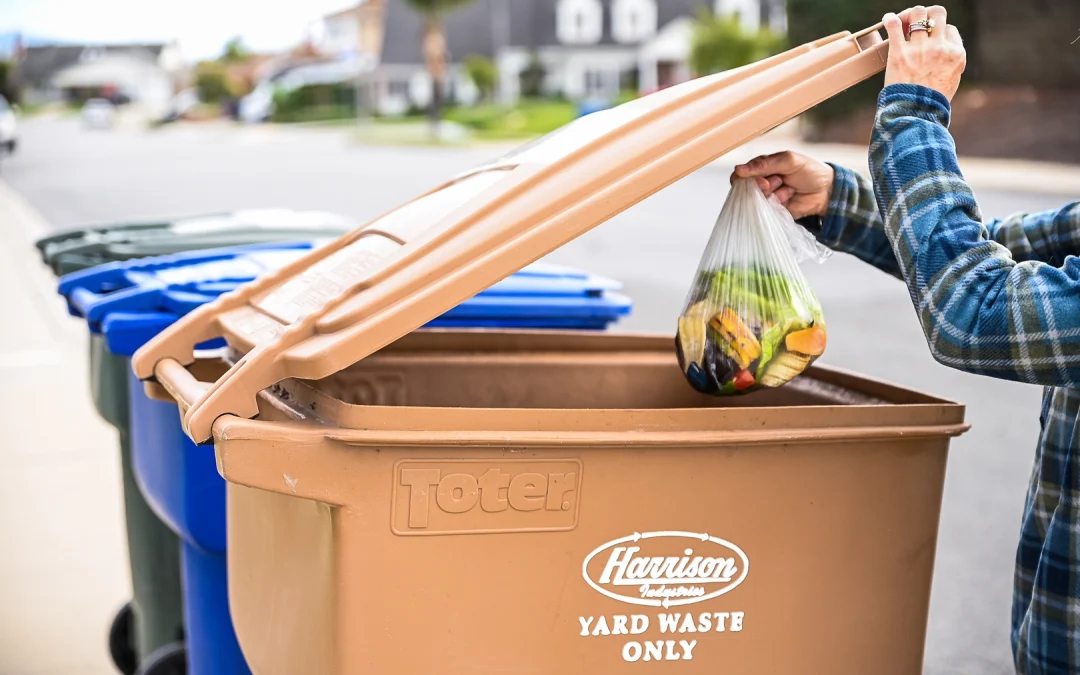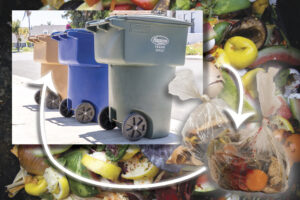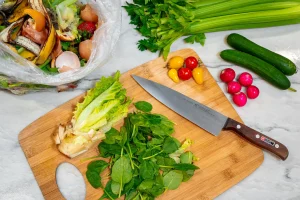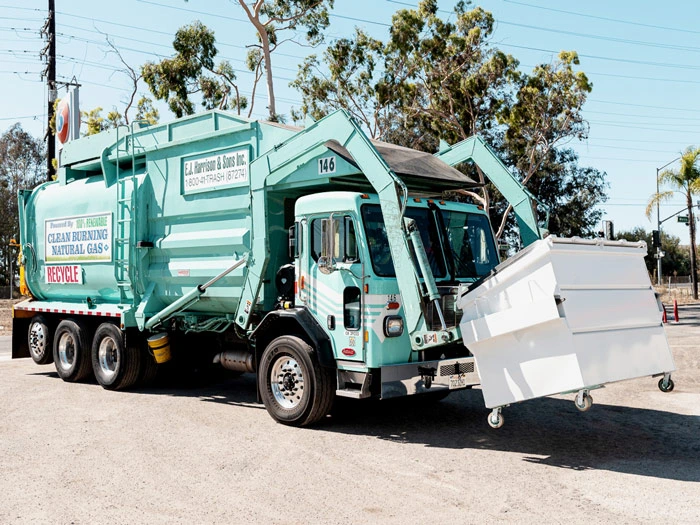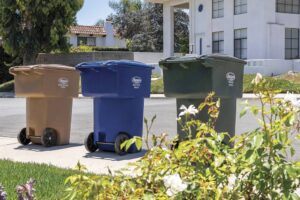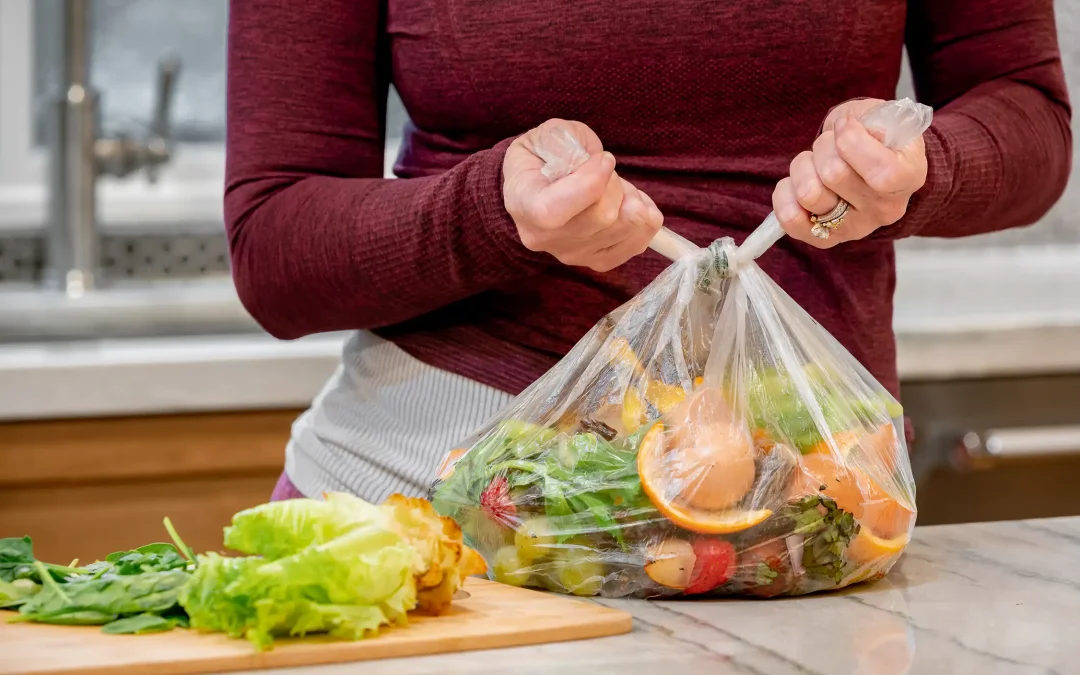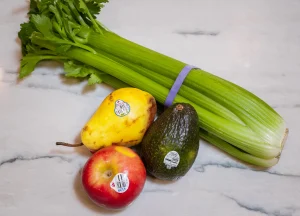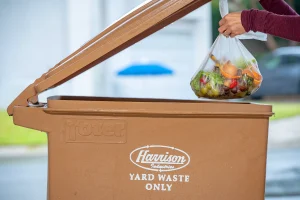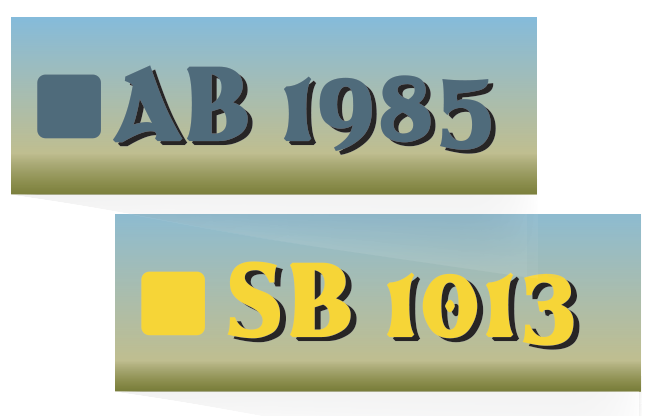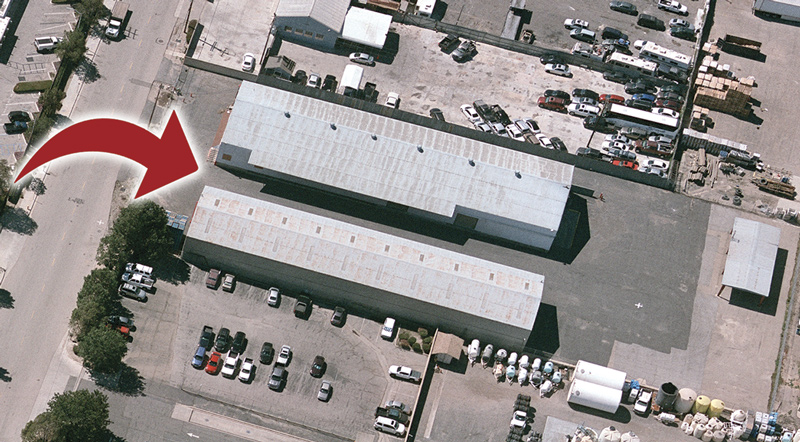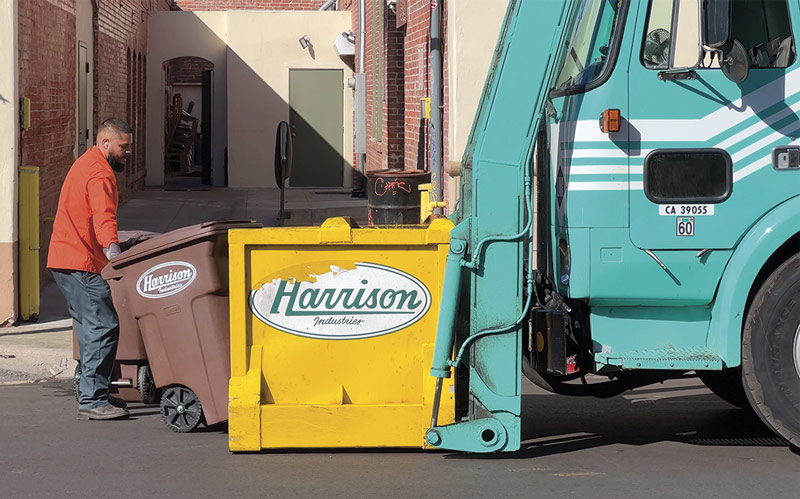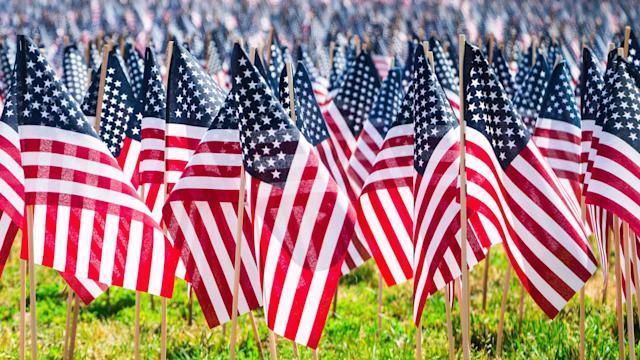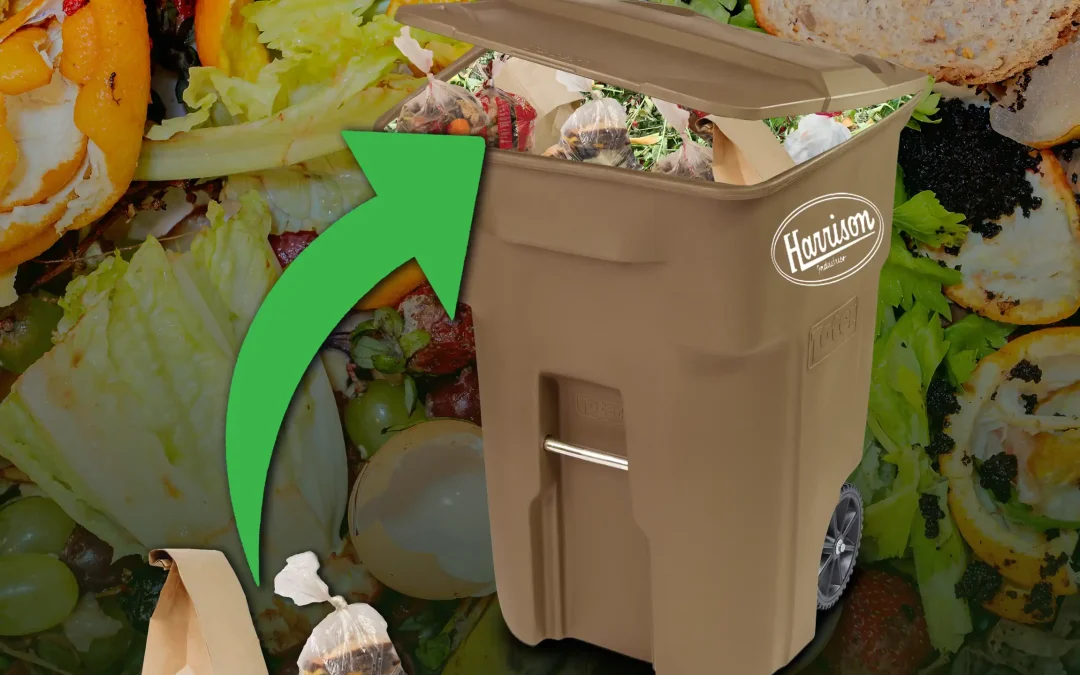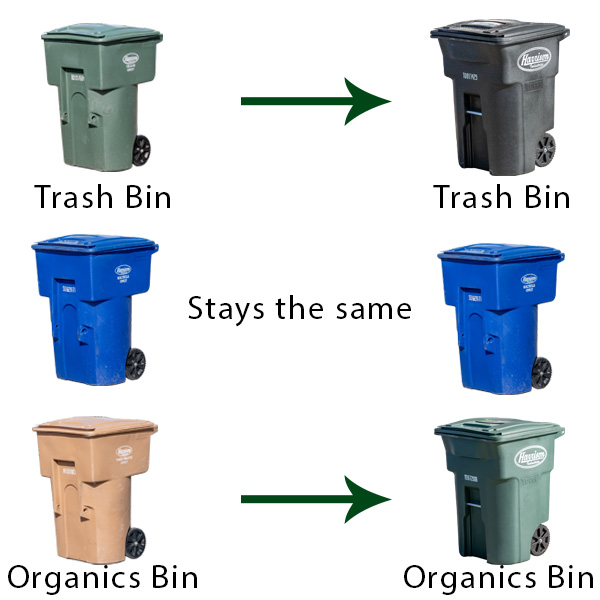
What’s Up With Waste Cart Colors?
If you see a black trash cart instead of the usual green this summer,
don’t fret – it’s just part of an ongoing statewide effort toward a uniform color system for residential waste bins.
State law mandates the uniform colors but gives trash haulers until 2036 for full implementation. Harrison Industries developed an orderly delivery plan that began with new developments. When your turn comes, you will be notified and receive instructions.
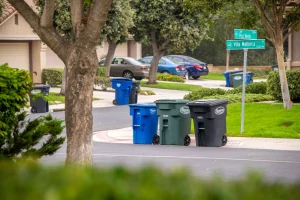
Based on the state rules:
* New black carts will replace the green ones now used for trash.
* Green carts will replace the tan ones now used for yard and food waste.
* Blue recycle carts will remain blue.
In the meantime, please choose the correct cart for disposal. Remember, the blue cart is for recyclables ONLY. Yard and food waste goes in the tan cart (first put food waste in plastic or paper bags and secure them tightly). All other trash goes in the green cart, or the new black cart if you have one of those.
We’re now picking up all three carts weekly, giving you more room to recycle all that you can.

For more information about waste cart guidelines and the state legislation that mandates it, visit ejharrison.com/guidelines
